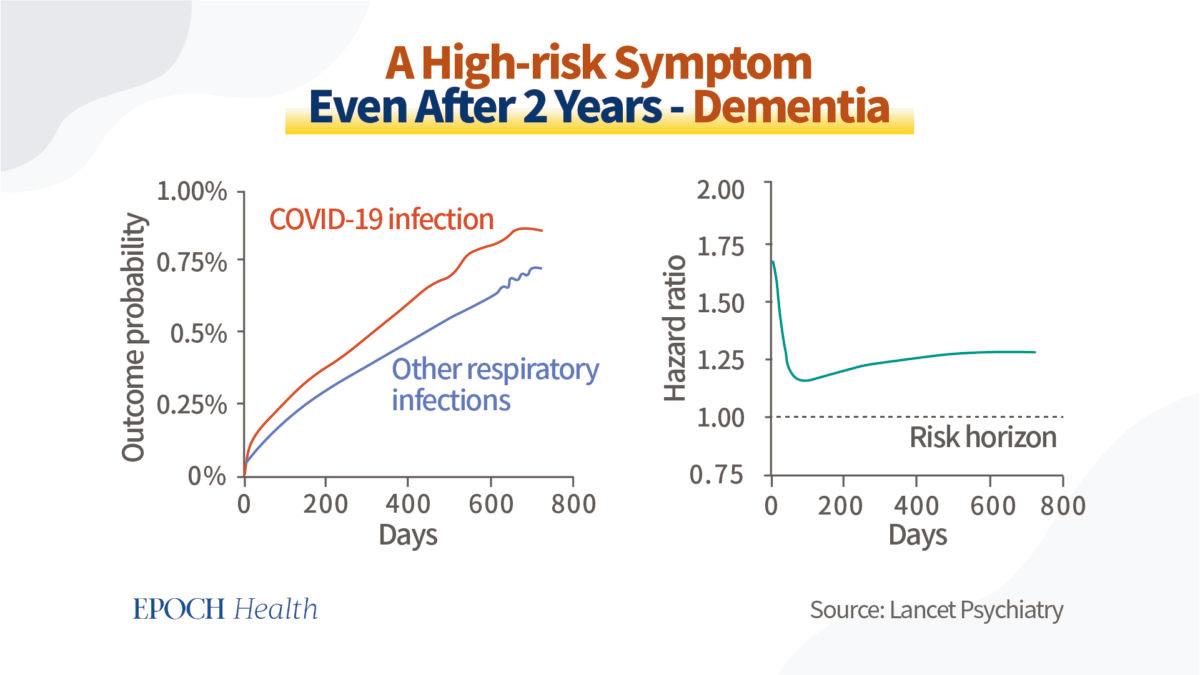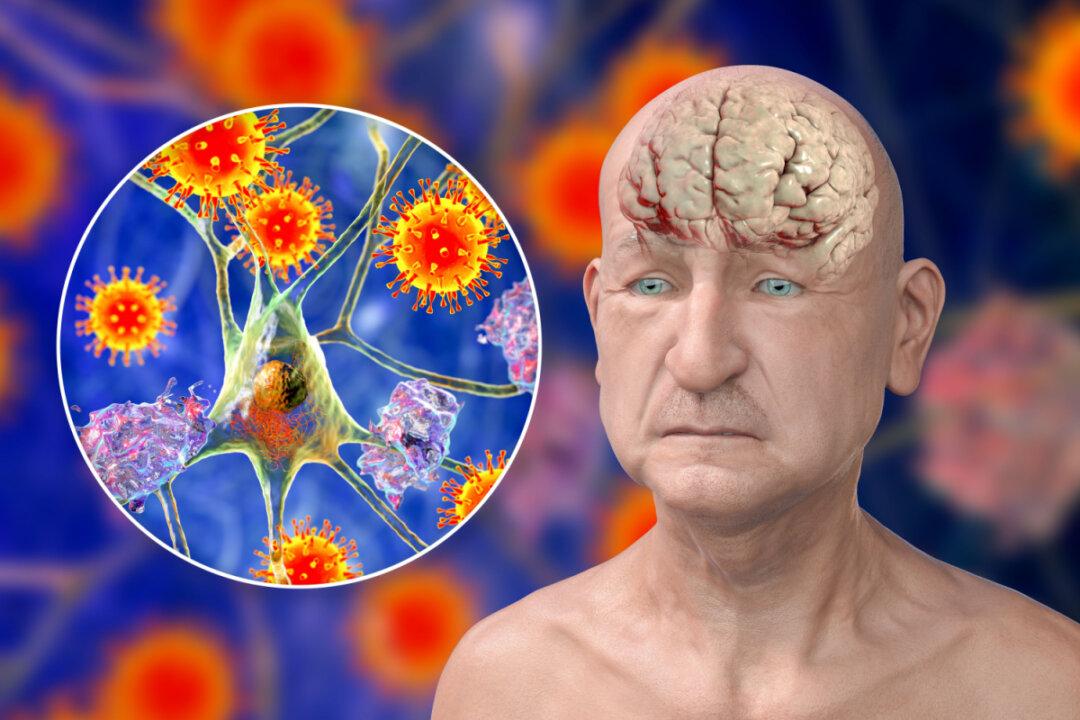Is it merely a coincidence that COVID-19 and aging are both accompanied by cognitive decline? Could COVID-19 alone cause aging? Do aging and COVID-19 combine to make cognitive function worse, or do they impair cognitive function separately? What can we do to prevent cognitive decline? This paper will examine these questions.
Summary of Key Facts
- COVID-19 accelerates brain aging and increases the risk of dementia even after two years in severe cases.
- Researchers found common ground at the genetic level for both COVID-19 and aging.
- Meditation can help preserve brain function and volume at the genetic level.
COVID-19 Accelerates Brain Aging and Increases Risks of Dementia
A large-scale UK study published in Lancet Psychiatry analyzed a two-year retrospective cohort including 1,284,437 patients. It revealed that the risk of dementia was significantly higher in the COVID-19 group than in the control group. Moreover, this risk remained higher even two years after recovery.
Risk of dementia increases even after two years in COVID-19 patients. Lancet Psychiatry







